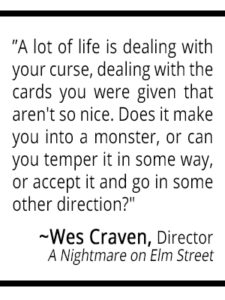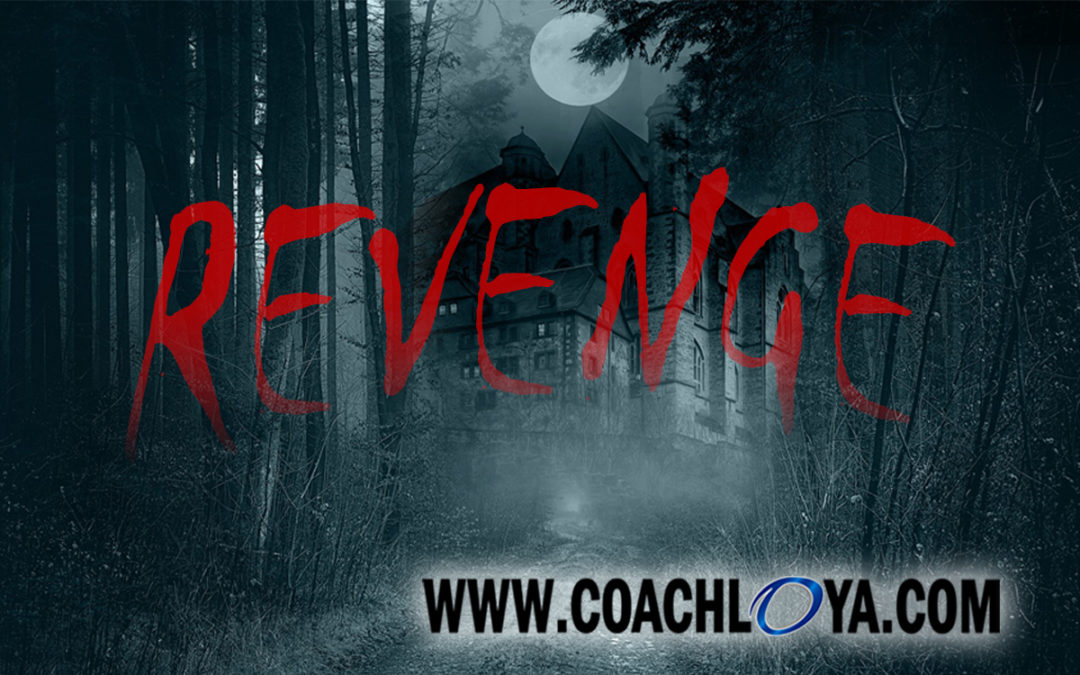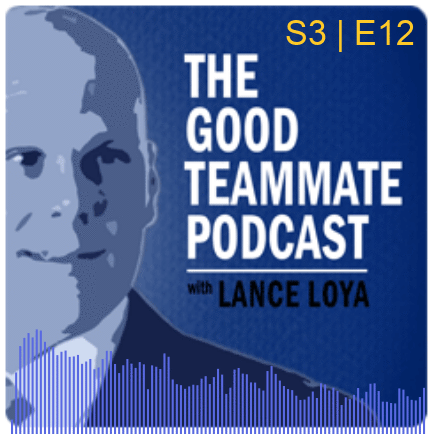Have you ever noticed how the psychopathic behaviors of villains in classic horror films are always initially motivated by revenge?
Jason Voorhees (Friday the 13th) sought revenge on the teenager who killed his mother—who herself sought revenge on the irresponsible Camp Crystal Lake counselors she blamed for her son’s drowning.
Michael Myers (Halloween) was bullied by a classmate and his mother’s abusive boyfriend before going on his terror spree. Freddie Krueger (A Nightmare on Elm Street) was burned to death by a group of vigilantes before haunting his victims’ dreams.
Revenge may make a good motive for a horror movie villain but not so much for a good teammate.
 Wanting to get back at someone who wronged you is understandable. The idea of inflicting hurt on the person or persons responsible for hurting you can be rather appealing. But psychologically, it can also be rather damaging—and wasteful.
Wanting to get back at someone who wronged you is understandable. The idea of inflicting hurt on the person or persons responsible for hurting you can be rather appealing. But psychologically, it can also be rather damaging—and wasteful.
A few years ago, scientists from the University of Geneva (Switzerland) studied the brain activity of participants who were wronged in an experiment and subsequently given the opportunity to exact revenge on those who had cheated them.
The scientists observed an immediate boost in neurological activity in the area of the participants’ brains associated with rewards. However, they also found that activity to be short lived, producing similar results as cocaine and nicotine use. As it turns out, revenge does not keep rewarding.
In fact, the opposite happens.
We expect revenge to be cathartic. We expect it to provide closure and free us from our emotional baggage. But it actually aggravates our wounds by prolonging the hurt of the original offense. Revenge is a curse because it leads to vindictive and malicious decisions.
Our inability to “let it go” and heal becomes a form of self-punishment, making us as grotesque on the inside as Jason Voorhees, Michael Myers, and Freddy Krueger are on the outside.
Good teammates realize that exacting revenge requires energy. While the possibility of punishing a perpetrator can be enticing, they know they are better served by asserting their energy elsewhere.
The next time you think about wasting your time on revenge, I hope Jason Voorhees’ “ki-ki-ki-ma-ma-ma” leitmotif from Friday the 13th enters your head, and that it serves as a reminder to assert your energy elsewhere.
As always…Good teammates care. Good teammates share. Good teammates listen. Go be a good teammate.
LIKE THIS MESSAGE?
Did you like the above message about revenge? Check out this similar podcast episode (5 min) about “chipless motivation” from season three. The most successful people aren’t motivated by a chip on their shoulder and you shouldn’t be either!
LISTEN NOW






